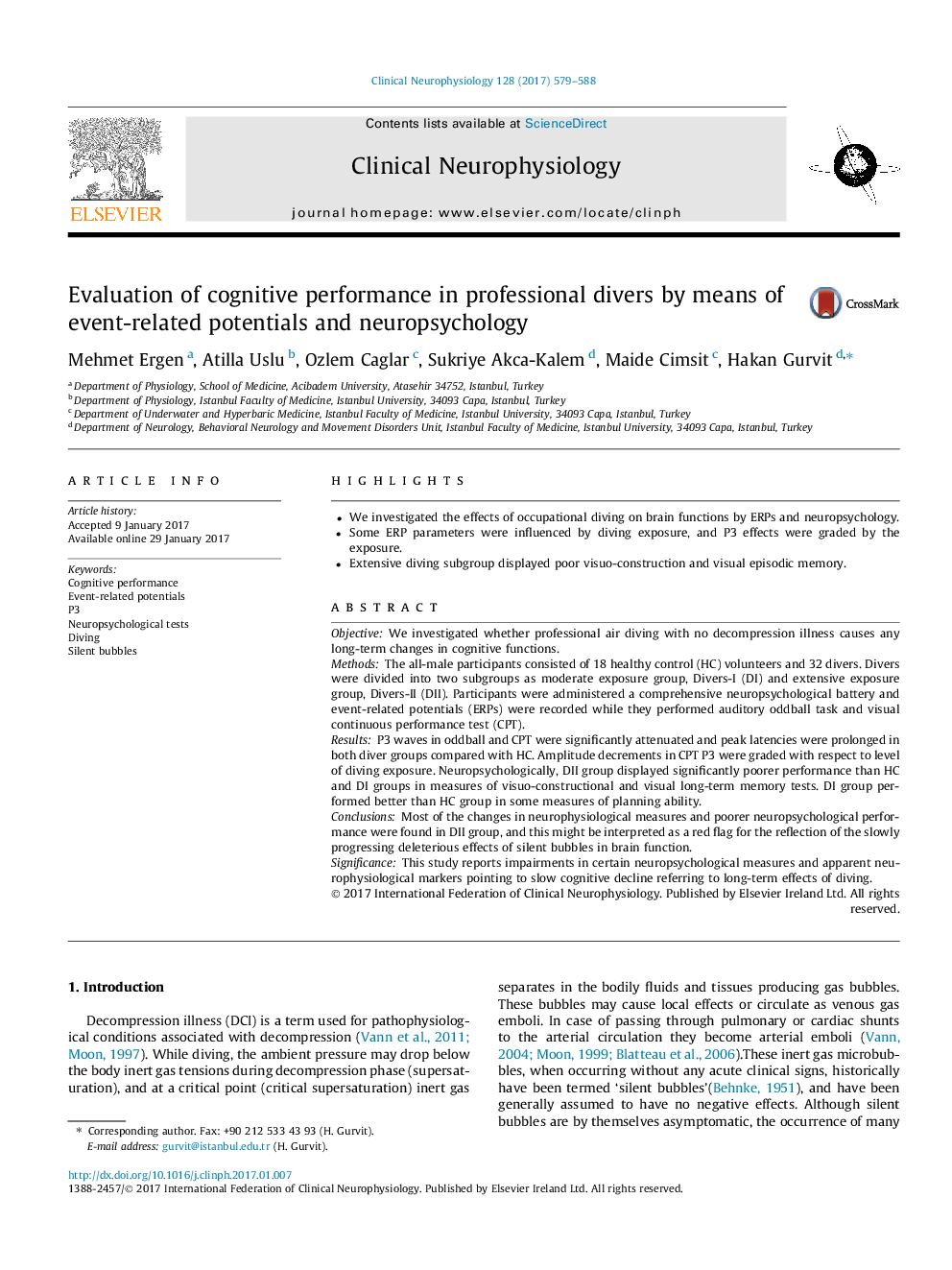| Article ID | Journal | Published Year | Pages | File Type |
|---|---|---|---|---|
| 5627644 | Clinical Neurophysiology | 2017 | 10 Pages |
â¢We investigated the effects of occupational diving on brain functions by ERPs and neuropsychology.â¢Some ERP parameters were influenced by diving exposure, and P3 effects were graded by the exposure.â¢Extensive diving subgroup displayed poor visuo-construction and visual episodic memory.
ObjectiveWe investigated whether professional air diving with no decompression illness causes any long-term changes in cognitive functions.MethodsThe all-male participants consisted of 18 healthy control (HC) volunteers and 32 divers. Divers were divided into two subgroups as moderate exposure group, Divers-I (DI) and extensive exposure group, Divers-II (DII). Participants were administered a comprehensive neuropsychological battery and event-related potentials (ERPs) were recorded while they performed auditory oddball task and visual continuous performance test (CPT).ResultsP3 waves in oddball and CPT were significantly attenuated and peak latencies were prolonged in both diver groups compared with HC. Amplitude decrements in CPT P3 were graded with respect to level of diving exposure. Neuropsychologically, DII group displayed significantly poorer performance than HC and DI groups in measures of visuo-constructional and visual long-term memory tests. DI group performed better than HC group in some measures of planning ability.ConclusionsMost of the changes in neurophysiological measures and poorer neuropsychological performance were found in DII group, and this might be interpreted as a red flag for the reflection of the slowly progressing deleterious effects of silent bubbles in brain function.SignificanceThis study reports impairments in certain neuropsychological measures and apparent neurophysiological markers pointing to slow cognitive decline referring to long-term effects of diving.
